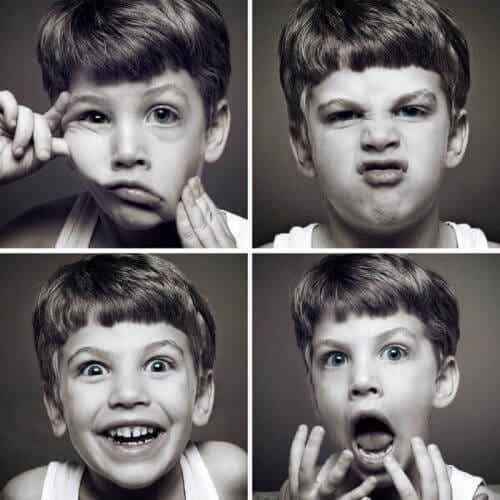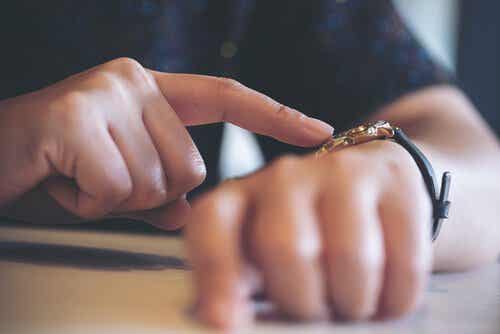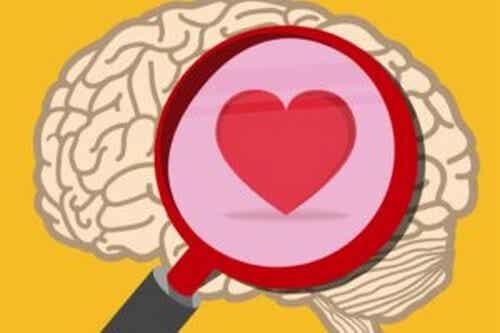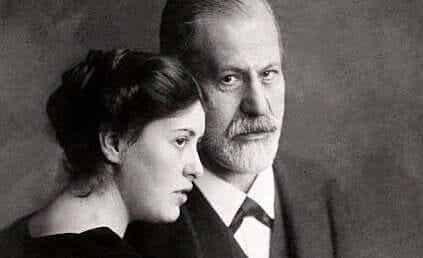Anxiety itself is neither positive nor negative, we decide how to transform it.

Last update: July 26, 2022
Each of us has emotions and ideas that lead us to deal with circumstances in different ways. We react differently to joys and obstacles, facing the world in a personal way. Sometimes, however, adaptation strategies are weakened by masked anxiety.
When we find ourselves living in a new situation, we tend to feel a fear that makes us nervous and anxious. For some, it will be more common than for others, but we have all, at least once, felt this way in an unfamiliar situation.
Anxiety is a state of mind that makes us feel insecure and agitated. It is usually about anticipating the future or the idea of an unfamiliar situation. Not knowing what lies ahead generates great anguish.
Anxious people usually appear agitated, sweat, bite their nails, walk back and forth, suffer from rapid heartbeat, feel confused or irritated, etc. It all depends, of course, on the gravity of the situation and the extent of the concern.
But there is also another type of anxiety: anxiety in disguise. Those who suffer from it seem to take everything with extreme naturalness and tranquility despite the anxiety. They are people who use the tool of impassivity to deal with difficult situations, but to the detriment of appearances they are by no means immune to it.
“Fear sharpens the senses. Anxiety paralyzes them. "
-Kurt Goldstein-
Masked anxiety, what is it?
Precisely because we are not all the same, we express ourselves in different ways, and this is also partly due to anxiety. We behave one way rather than another based on our thoughts and feelings.
Some people manifest their anxiety in the typical way, namely through the symptoms just mentioned: sweating, rapid heartbeat and irritability. Others, however, do it differently, through masked anxiety.
We refer to impassivity, which acts as a mask to hide anxiety. People who are impassive in difficult situations still feel anxiety, but they mask it in this way. That doesn't mean they don't have feelings, they just deal with tough times differently. These people manifest their thoughts and feelings while continuing to operate.
Those who resort to masked anxiety make their mask of impassivity. Tool they use to deal with stressful situations without losing control. Likewise, not expressing your emotions to others by avoiding questions that can make them uncomfortable.
Are they stronger than the others? In some cases yes and in others no. Basically these are people who hide their emotions and thoughts to escape the discomfort. Behind the mask, they may also experience deep pain, but decide not to manifest it to avoid greater suffering.
On what occasions do we use the anxiety mask to hide what we feel and think?
We generally view anxiety as unpleasant as a cause of distress. But it is not always negative, often helps us identify a danger. Therefore, it all depends on the moment and the point of view. Well, when is it then, that we hide behind the mask of anxiety?
- In extreme situations. When the people around us don't know how to deal with a situation and we feel compelled to take charge of it. For example, dealing with formalities after the death of a loved one.
- When we don't want to show pain. We do not want to show our inner universe, even if this choice can cause us even more pain, perhaps because we are convinced that others cannot understand us. .
- Something paralyzes us. When we feel so afraid that we are no longer able to feel, think or act. We remain petrified, as if we were no longer alive in the face of a difficult situation.
- An easy excuse. To avoid facing situations that we consider too complicated.
- We are reserved. We don't want anyone to know about us. And we hide anything that can provide clues about our person.
Although we can all go through a period of making impassivity our form of anxiety, there are people who always manifest it this way. You might think they're cold and calculating, but that's not always the case, they just don't want to show their feelings.
How to treat masked anxiety?
Sometimes it is difficult to relate to these people, especially if we consider them insensitive because they do not express emotions. But this is not always the case, for some it is easier to show their feelings. Not doing it doesn't mean it's wrong, it's just another course of action.
When you come across an impassive anxious person, try to understand his difficulty. Do not judge him if he does not express himself, he is not necessarily insensitive. Rather, you can help him trust so he can tell how he feels.
One might also think that the impassive are not empaths; to verify this, it may be useful to ask them what position they would adopt in a given situation. The answer may even surprise you.
Sometimes unemotional people are simply afraid of being hurt. For this, we should be able to convey confidence to them by letting them know we appreciate them. It is a way to show closeness, while respecting the times and privacy.
Well, not all impassive people are always good people. There are people who express nothing precisely because they feel nothing, but not because of anxiety, simply because they do not put themselves in the other's shoes and think only of their own interest. They are cold people, then impassivity is not always synonymous with anxiety.
Benefits of Unmasking Your Anxiety
There are times when leaving aside your thoughts and feelings can be good because it makes us act less impulsively and makes us more effective. However, avoiding the use of disguised anxiety also has several benefits. Here are some of them:
- Have more authentic relationships.
- Release the stress.
- Develop greater empathy.
- Increase self-knowledge
- Gain higher self-esteem
- Greater sincerity
- Greater peace of mind.
- Greater confidence in others and in themselves.
Anxiety itself is neither good nor bad, we decide how to transform it. Address your anxiety by taking off your mask. You will find ways to show yourself to others in an authentic way, and this will allow you to have more sincere relationships.
Being impassive does not mean being strong, there is nothing wrong with not being able to dominate a situation and feeling oppressed and sad, or even disoriented. Allow yourself to express your inner world, it will be easier for others to help you and for you not to carry all the weight alone. Never anticipate events.


























